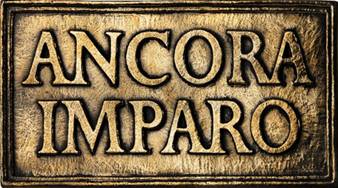 I read a fascinating anecdote in Ted Dintersmith’s book, “What School Could Be”. Here’s my paraphrase:
I read a fascinating anecdote in Ted Dintersmith’s book, “What School Could Be”. Here’s my paraphrase:
A second-grade teacher (Kayla Delzer) in North Dakota created “Genius Hour” in her classroom: one hour per week in which students could go off and learn about a topic of their own choice, to become mini-experts in whatever interested them, unconstrained by the curriculum.
An 11th-grade teacher in North Dakota heard about this great idea and tried it with his students. After he announced the idea, half of his students Googled “What should I be interested in?”
This is amusing and sad at the same time. Also mystifying.
I recognize here something I’ve seen myself, recently, from college students. When I visit universities to give talks, I often get to meet with student groups in an informal discussion setting. A couple of times now, I’ve gotten student questions that are some variant of:
“How did you figure out what you were interested in?”
(i.e., what to study, or what job to pursue, etc.)
The first time this happened, I went blank. I couldn’t understand the question. I could talk about how I was drawn to computer science because I did a lot of sci-fi reading and was captivated by the ideas and what-could-be — but I’ve never thought about having a process of “figuring out” what I would be interested in. You just know.
The second time it happened, I replied, “Well, I guess it’s like asking how you know what your favorite color is!” — which is true, but not very useful. And I felt unsatisfied with myself, like I was missing something. Why would anyone ask that question? Could you really not know what your own interests are? Could you really… not have any?
Dintersmith’s story suggests one answer — that students are over-structured and expect there to be a “right” answer to everything and want to know how to get there. It comes from without, not within.
Conversations with some close friends suggested another answer — that students *do* have interests, but they don’t trust themselves. They may love horses or history or hieroglyphics, but they’re bombarded with messages about the necessity to pursue something that pays well, or has prestige, or (again) is the “right” choice. So they are weighing their interests against external forces, and maybe what that question is really asking is “how did you reconcile your interests with reality?”
I don’t think I have a good answer to that one either, since effectively I went after what I thought was most interesting and it was dumb luck that it also ends up being something people will pay you to do. I wasn’t really aware of the job market while I was a student. But now at least I may have something more useful to say, by turning back to the students and asking if it’s really concerns about employability, rather than a lack of personal interests, that they’re worrying about. Fascinating.
 I learned a new phrase today: “Ancora imparo.” In Italian, it means “I am still learning” – what a great message! It apparently is often misattributed to Michelangelo, but actually derives from a letter by Seneca (who would not have written in Italian, but it had been popularized in Italy in Michelangelo’s time). To me it sounds like a wonderful reminder of humility and acceptance of not being perfect at something… yet :)
I learned a new phrase today: “Ancora imparo.” In Italian, it means “I am still learning” – what a great message! It apparently is often misattributed to Michelangelo, but actually derives from a letter by Seneca (who would not have written in Italian, but it had been popularized in Italy in Michelangelo’s time). To me it sounds like a wonderful reminder of humility and acceptance of not being perfect at something… yet :) 